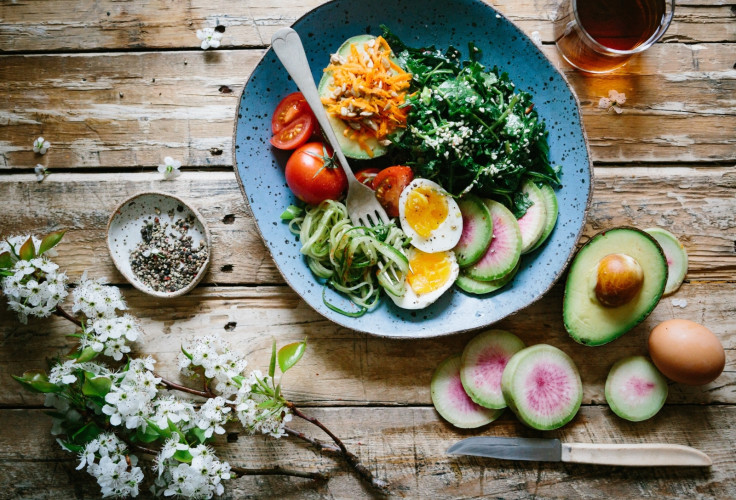5 ways to stay young for longer that are proven by science
A new study has shown that attitude is an important factor in enjoying a long life.

Fancy skin elixirs and pricey personal trainers may seem like the key to a long and healthy life. But no anti-ageing cream on earth can top the life-lengthening effects of positivity, a work ethic, stubbornness, family and religion, according to a new study.
Researchers made this finding by speaking to the residents of a cluster of remote villages in the Cliento region of southern Italy, where several hundred people are aged 90 or more.
The team from the University of California San Diego asked 29 people from nine villages about their personality traits, beliefs, physical health, and whether they had been affected by migration and trauma.
They found that attitudes including self-confidence, as well as finding purpose in tending to the land, contributed to their longevity.
Below are five other scientifically proven ways to live a longer life.
Exercise (a lot)
However much we wish that eating chips and watching Netflix is equivalent to drinking from the fountain of youth, it just isn't. It's no surprise that physical activity keeps our bodies fit and healthy, but how much and how hard should we be exercising?
A team of scientists at Brigham Young University found that those who took part in high levels of physical activity had longer telomeres than those who were sedentary, or took part in low/moderate levels.
"They're like our biological clock and they're extremely correlated with age; each time a cell replicates, we lose a tiny bit of the endcaps. Therefore, the older we get, the shorter our telomeres," BYU explained in a statement on the findings.
But in the end, some is better than none. Countless studies show that a sedentary lifestyle increases the risk of premature death from conditions, including heart disease and cancer.
Eat like a Mediterranean
The Mediterranean Diet is often hailed as among the healthiest in the world, having been linked to lowering cholesterol, preventing dementia and keeping heart disease at bay. But what is it, exactly?
In 2013, Unesco listed it as part of the heritage of nations including Cyprus, Croatia, Spain, Greece, Italy, Morocco and Portugal, which offers a clue to what it comprises of. Fruit, vegetables, legumes, lentils, peas, peanuts, whole grains, and healthy levels of olive oil are all on the menu. So is fresh fish and seafood, chicken, eggs, and small amounts of dairy including cheese and yogurt. For those who can burn them off with physical activity – be that tending to a field or sweating at the gym – pasta bread and potatoes also feature in smaller amounts. Red meat and sweet foods, however, do not, The Guardian reported. The key to this diet is moderation and freshness.

Keep learning
Bad news for those who hated homework at school: learning has been linked to leading a longer life. A 2015 study by US researchers found that those who receive higher education outlive those who don't. Alarmingly, failing to graduate from high school raised the risk of mortality almost as much as smoking.
"[Education] affects your social network, your access to information, your ability to understand information," Virginia Chang, associate professor of public health at New York University who co-authored the study, told USA Today.
"People with higher education feel like they have more agency and self-efficacy; they have more cognitive skills to manage any sort of complicated situation, to navigate the health care system; they have more social support."
Book in for a blood infusion (in a couple of decades)
It may be more like a narrative from a horror film than slapping some anti-ageing cream on your face, but it's probably more likely to work. While it has only been tested in mice studies, scientists at Harvard University and the University of California, San Francisco found that both conjoining young and old mice as well as injecting youthful plasma into older test subjects reversed age-related damage in the brain, Mic reported.
Researchers hope to test the effects of blood infusions on humans in three to five years.
"The evidence is strong enough now, in multiple tissues, that it's warranted to try and apply this in humans," Saul Villeda, a lead author in one of the studies, told Mic. "There's something about young blood that can literally reverse the impairments you see in the older brain."
Be kind
Before Gertrude Weaver died at the age of 116, the centenarian from Camden, Arkansas, was asked how she cheated death for so long. "Kindness [...] treat people right and be nice to other people the way you want them to be nice to you" was her answer to Time magazine.
Sure, that seems like a cop out – but she may have been on to something. Researchers at the University of North Carolina found that thinking positively reduces stress, while negative thoughts can be harmful.






















